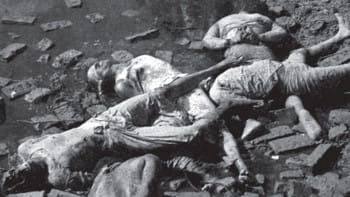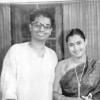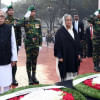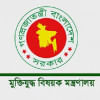The cost of speaking truth to power

Every year, December 14 serves as a stark reminder of the devastating loss this nation suffered during the Liberation War, when the Pakistan Army and their local collaborators dealt a lethal blow to the Bangalee consciousness. Facing an inevitable defeat before the indomitable Bangladeshis, they picked up the brightest minds of our nation and killed them in the most brutal manners. The wound created by this calculated move is felt to this day, 52 years later.
Intellectuals build a nation's collective conscience and keep the powers that be accountable, acting as the moral check and balance. Pakistan understood this well, which is why, since the very onset of our Liberation War, our intellectuals were targeted by the Pakistan occupational force and their local collaborators. Academics, journalists, free thinkers, politicians, artists, litterateurs, etc—those who acted as the voice of the people, and those that the rest of the nation looked up to for guidance, inspiration, and courage—were routinely surveilled and eliminated, as Pakistan conducted its macabre campaign to subjugate us. It's a disservice to the legacy of our martyred intellectuals that Bangladesh still has to decry the lack of public intellectuals that will boldly speak truth to power, like they did all those years go.
There is no doubt that the space for free expression, critical thinking, constructive criticism, and speaking truth to power in our country is compromised today. Repression of dissent and opposition voices with draconian laws like the Digital Security Act (DSA)—rebranded as the Cyber Security Act this year—has led to an environment of censorship and fear across the country. Our youth, the future of our nation, feel unsafe to voice their opinions, as a survey found recently. How can we hope to grow intellectually when free thinking is suppressed this way? How can we have robust intellectual exercises, where ideas would flow without constraints, in an environment of fear?
Today, as we remember those who gave their lives so we could be a free nation, we must reflect on their legacies, and how they stood up for us to cement our civil rights. For our society to be truly progressive and for our country to be truly democratic, freedom of expression and critical thinking must be ensured in every aspect of our lives. Fear must not dominate public discourses, especially those which are critical of power.
Follow The Daily Star Opinion on Facebook for the latest opinions, commentaries and analyses by experts and professionals. To contribute your article or letter to The Daily Star Opinion, see our guidelines for submission.

 For all latest news, follow The Daily Star's Google News channel.
For all latest news, follow The Daily Star's Google News channel. 









Comments